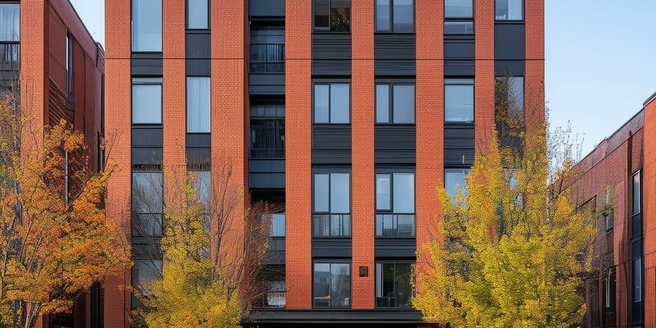Understanding the Concept of Affordable Housing
Affordable housing is a term often used to describe dwelling units whose total housing costs are deemed affordable to a group of people determined to be ‘economically weak’ by national economy standards. Primarily, it benefits individuals and families who fall below the median income range. It is a crucial aspect of social infrastructure, aiming to provide a basic necessity to those who might struggle otherwise. In essence, the term usually implies that a household can allocate a certain level of its income on housing expenses and still manage to have enough left for other non-discretionary spending.
The Current Situation of Low-Income Families and Housing
Rising housing costs are causing a hardship for low-income families, and escalating rents contribute to financial strain, leading to stress and decreased quality of life. High housing costs often force these families to spend over half their income on housing, creating a struggle to afford other necessities. It is crucial to address this issue through measures such as improving affordability, expanding rent control, and advocating policy changes. We can alleviate housing pressures and provide a long-term solution by tackling the root causes of these high costs. As a society, we have a responsibility to implement effective strategies against the adverse effects of increased housing costs on low-income families to prevent severe socioeconomic consequences and ensure financial stability and equity.
Importance of Affordable Housing in Poverty Alleviation
Affordable housing combats poverty and improves living standards for countless households worldwide by providing people more financial freedom to invest in essential needs like healthcare, food, and education. An increase in housing expenditure often leads to a reduced spending capacity for these crucial areas, exacerbating the cycle of poverty. For example, high housing costs can limit access to necessary health services, nutritious food, and quality education. Thus, innovative solutions and policies focused on generating more affordable housing options are urgently needed to alleviate poverty levels and foster an environment conducive to growth and prosperity for all.
Government Programs and Policies for Affordable Housing
Numerous state initiatives and legislative plans are employed to address the ongoing affordable housing crisis, ranging from providing financial aid to facilitating construction of affordable housing units. Governments worldwide are proactively involved in these endeavors, taking systematic and practical measures towards ensuring accessible housing for everyone, regardless of economic status. Subsidies manifest in many forms including voucher programs, tax credits, or direct monetary aid, making the housing market more accessible for those with limited incomes. Moreover, policies often take the shape of zoning laws for low-income housing and incentives for private developers to include affordable units, successfully increasing the supply of affordable homes. This ongoing global initiative against the housing crisis serves to recognize housing as a fundamental human need and right rather than merely a commodity.
Non-Profit Organizations Aiding Low-income Families to Secure Homes
A significant number of global non-profit organizations dedicate their efforts to help low-income families find affordable and safe housing. They operate in multiple important fields to effect social change, focusing on the housing struggles of these families. Understanding the importance of a stable, secure home environment for family development, they promote sustainable community stability and development part of their mission. They tirelessly partner with various entities to alleviate housing issues and make homeownership a tangible reality for increasing families each year. Besides raising funds for initiatives, they implement innovative, solutions for improving families’ life stability and quality. They know a home is more than a roof; it’s a foundation for a fulfilling and confident life. Therefore, they advocate for fair housing practices and policies to lower housing barriers and ensure more families afford homes.
How to Apply for Affordable Housing: A Step-by-Step Guide
Securing affordable housing can be intimidating, but understanding the application procedure and familiarizing oneself with the necessary steps can turn it into an achievable goal. This includes knowing who to contact, where to apply along with understanding the information needed and how deadlines factor in. With this knowledge, applicants can increase their chances of success. The end goal is securing housing that is reasonably priced, meets personal preferences and requirements. It’s not just a financial decision, but one of comfort and lifestyle. Dedicating efforts towards this can be more effective with a thorough understanding of the application process, which may first seem complex but can be broken down into simple, manageable steps. This approach towards securing affordable and suitable housing reduces the stress of the task.



